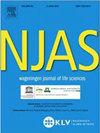“If they don’t tell us what they do with it, why would we trust them?” Trust, transparency and benefit-sharing in Smart Farming
Abstract
Advances in Smart Farming and Big Data applications have the potential to help agricultural industries meet productivity and sustainability challenges. However, these benefits are unlikely to be realised if the social implications of these technological innovations are not adequately considered by those who promote them. Big Data applications are intrinsically socio-technical; their development and deployment are a product of social interactions between people, institutional and regulatory settings, as well as the technology itself. This paper explores the socio-technical factors and conditions that influence the development of Smart Farming and Big Data applications, using a multi-level perspective on transitions combined with social practice theory. We conducted semi-structured interviews with 26 Australian grain farmers and industry stakeholders to elicit their perspectives on benefits and risks of these changes. The analysis shows that issues related to trust are central concerns for many participants. These include procedural concerns about transparency and distributional concerns about who will benefit from access to and use of “farmers’ data”. These concerns create scepticism about the value of ‘smart’ technologies amongst some industry stakeholders, especially farmers. It also points to a divergence of expectations and norms between actors and institutions at the regime and niche levels in the emerging transition towards Smart Farming. Bridging this divide will require niche level interventions to enhance the agency of farmers and their local networks in these transactions, and, the cooperative design of new institutions at regime level to facilitate the fair and transparent allocation of risk and benefit in farming data information chains.

 求助内容:
求助内容: 应助结果提醒方式:
应助结果提醒方式:


